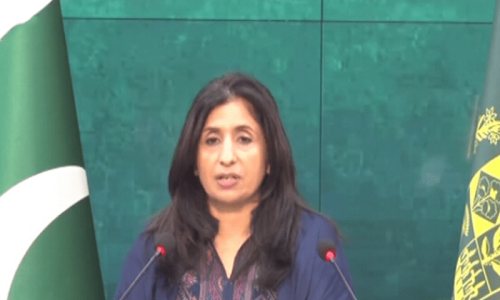TEHRAN, Sept 16: Iran announced on Tuesday that it has put the elite Revolutionary Guards in charge of defending the country’s territorial Persian Gulf waters in what appeared to be a hardening of its stance in the vital oil route.
US commanders in the Gulf have in the past said they find Guards ships more confrontational than the regular Iranian navy, which until the new order was responsible for Iranian defences in the Gulf.
Iran has warned repeatedly that it will close the narrow Hormuz Strait at the mouth of the Gulf if the United States or Israel attacks it amid tensions over Iran’s nuclear programme. Around 40 per cent of the world’s oil passes through Hormuz.
Last winter, Iranian and US ships patrolling the Gulf had a series of small confrontations in Hormuz.
Gen. Yahya Rahim Safavi, the top military adviser of Iran’s Supreme Leader Ayatollah Syed Ali Khamenei, announced the change on the state news agency IRNA on Tuesday.
He said that the responsibility to defend the Persian Gulf has been delegated to the Guards’ navy, while the regular navy would operate in the Oman Sea, outside the Gulf and in the landlocked Caspian Sea.
Safavi, who was the head of the Guards until earlier this year, warned that all vessels in the Gulf are within the range of Iranian missiles.
“No warship can pass through the waterway without being in our range,” he said.
“Our armed forces, possessed with defensive weapons including missiles, air, sea and torpedoes, are able to control the Strait of Hormuz.”
A US Navy spokesman in Bahrain, Lt Nathan Christensen said the move would not significantly affect the 5th Fleet’s patrols of the Persian Gulf, including the strategic waterway. The Fleet’s task is to keep the Strait of Hormuz open to ensure “free flow of trade and commerce in and out of the region,” he said.
“We are not interested in a confrontation in the Gulf,” said Christensen, speaking over the telephone from the 5th Fleet’s Mideast headquarters in Bahrain’s capital, Manama. He added that the Navy expects “responsible and professional maritime behaviour” of all vessels in the Gulf, including those of the Iranian Guards.
The US Navy normally keeps some three dozen warships and auxiliary vessels in the area. It currently has one aircraft carrier operating in the Gulf.
Having the Guards trolling the Gulf waters will raise tensions, suggested analyst Riad Kahwaji at the Dubai-based Institute for Near East and Gulf Military Analysis.
“It’s now the hardline, radical force that has taken the lead in military matters, not just in political affairs of Iran,” Kahwaji said. In addition, the US will have to communicate at sea directly with the hardline force -- “an entity it regards as a terrorist organisation.”—AP












































Dear visitor, the comments section is undergoing an overhaul and will return soon.